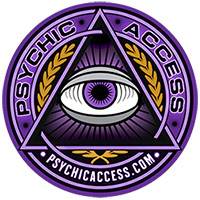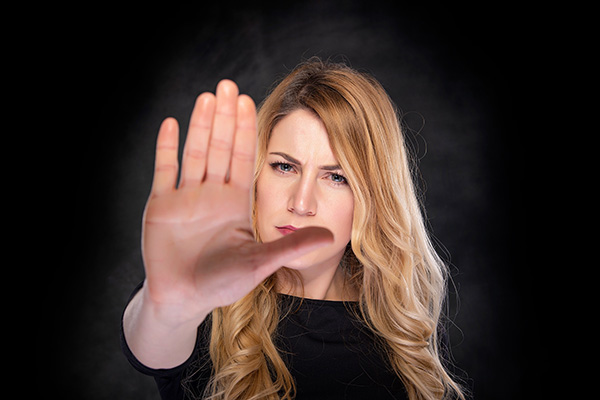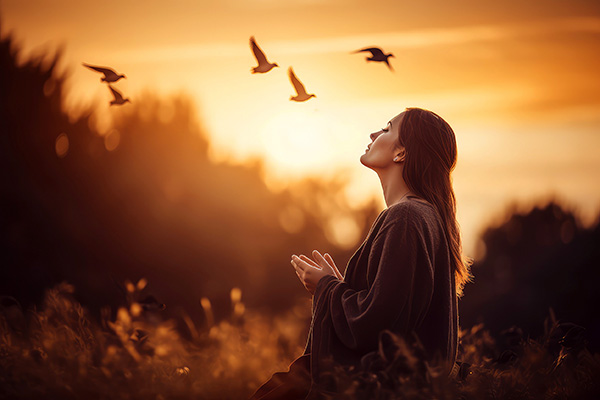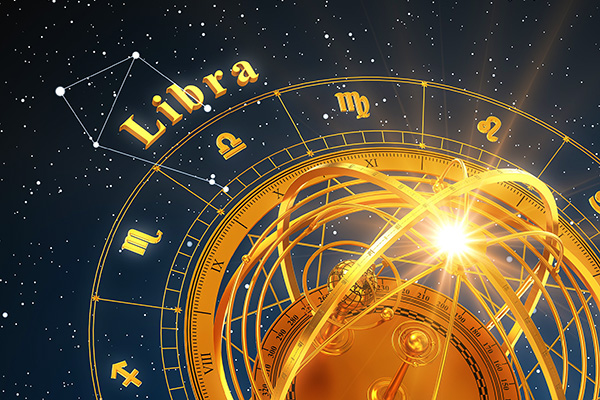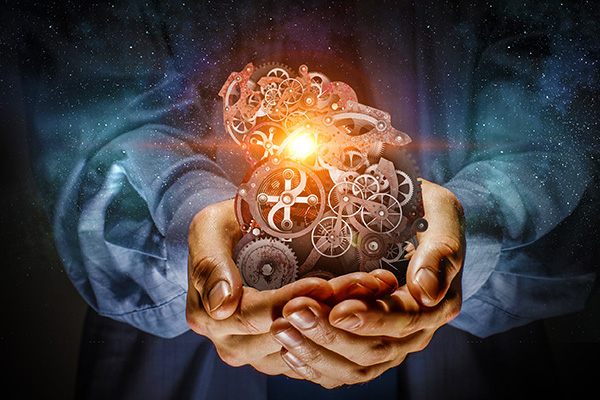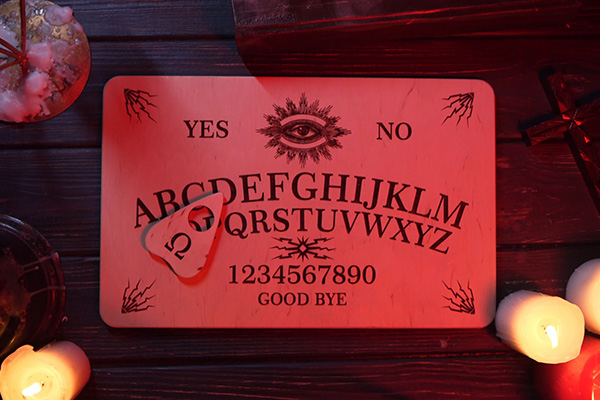The Significance of Direction in Relation to Basic Forecasts
 Not every psychic reading is the same. The contrast between a brief, shallow conversation and a profoundly transformative psychic experience is found in the level of genuine guidance.
Not every psychic reading is the same. The contrast between a brief, shallow conversation and a profoundly transformative psychic experience is found in the level of genuine guidance.
Authentic psychics and mediums provide more than straightforward answers and basic predictions — they channel insights and advice that empower their clients to navigate life with increased clarity, confidence, purpose, and inner tranquility.
Genuine psychic readings typically include some form of guidance to aid the recipient in their healing, personal growth, and spiritual progress.
While some individuals pursue psychic readings for quick predictions and instant resolutions, this method is self-restrictive and not advised. Trustworthy, ethical psychic readings do not simply cater to clients’ desires.
Talented psychics and mediums tap into higher consciousness levels, universal energies, and the spirit realm to provide profound insights and support the seeker’s unique journey. A psychic reading serves as a chance for exploration, healing, and empowerment, intended to illuminate potentialities instead of suggesting fixed outcomes or offering simplistic solutions to intricate issues.
Psychic readings are not about shortcuts; rather, they aim to nurture and enrich your life journey. True psychics assist clients in evolving through their choices, actions, and experiences, rather than bypassing them. Quick, straightforward answers may provide temporary solace, but real empowerment arises from within — through personal and spiritual healing and development. Authentic psychics guide their clients in accessing their inner wisdom, resilience, and intuition.
You are the architect of your fate. You have the ability to influence, direct, and manage your own surroundings. You can shape your life to be what you desire it to be ~ Napoleon Hill
Free will aligns seamlessly with destiny. It is not contradictory. Prior to entering this life, you made choices with your free will that aligned with a specific plan for your existence. This defined the purpose of this life as opposed to any other you could have selected. We refer to this broader, more objective plan supported by the greater universe as “destiny.” Consequently, exercising your free will to pursue what you desire in this life aligns you with your destiny. ” – Teal Swan
Predictions vs. Guidance
While predictions are often a component of the psychic reading experience, they should never be the primary focus. The future is dynamic, and the significant aspects of life are seldom one-dimensional and assured. Our life narrative is not an unchangeable script but a dynamic interaction of free will and destiny. Life’s obstacles frequently require intricate solutions rather than simplistic answers. Reputable psychics understand this intricacy and can present a custom roadmap for each client’s journey.
Some form of guidance, coaching, or encouragement should always be integrated into the essence of a psychic reading, addressing the deeper “whys” and “hows” of life’s inquiries, not just the “whens.” Authentic psychics give precedence to guidance because predictions can evolve over time. Choices made through free will, as well as outside influences and the free will of others, can alter the outcomes of events. Genuine psychics can see, hear, feel, or sense this when they perform a reading, and they understand from experience that there’s more to future results than fate alone.
Authentic psychics acknowledge the significance of personal accountability, the free will of others, karmic influences, co-created realities, and divine intervention in a client’s destiny. Thus, they empower clients to focus on factors within their control and advise them on how their own choices and actions are likely to impact their future, positively or negatively, rather than simply providing a predetermined timeline or guaranteed result.
A psychic reading should leave you feeling uplifted and prepared to tackle whatever comes your way ~ James Van Praagh
How Psychic Guidance Changes Lives
A genuine psychic reading is a collaboration between the seeker and the psychic, a sacred interchange in which insight, healing, and transformation take place. Ethical psychics aim to provide assistance that enhances the well-being and growth of the individual. By emphasizing guidance over mere predictions, ethical psychics empower clients to take control of their lives, make informed choices, and align with their highest potential.
Some of the key distinctions between a cursory versus a comprehensive psychic reading are:
PROVIDES CLARITY IN UNCERTAINTY
When life becomes overwhelming, a psychic reading can assist in unraveling the chaos. Guidance allows clients to view their challenges from a broader perspective, bringing clarity to what may otherwise seem insurmountable. Detailed guidance offers context and clarity to the predictions, helping individuals grasp how to effectively apply the insights in their lives. This clarity can bring inner peace, even amidst hard choices.
PROMOTES PERSONAL GROWTH
Psychic guidance delves into the deeper aspects of a situation, aiding clients in understanding their role in it and how they can evolve through the experience. It helps the recipient gain better self-awareness, overcome difficulties, and achieve their objectives. For example, rather than merely predicting “you’ll get that job,” an ethical psychic might investigate what further actions the client can take to secure the position, or why the job might be a temporary step due to its misalignment with the client’s true purpose, or what measures they should adopt for long-term success in the new role, and so forth.
REVEALS HIGHER PURPOSE
Many individuals turn to psychic readings during transitional phases, such as job changes, relationship challenges, or spiritual awakenings. Ethical psychics grasp the broader picture of a person’s life. They offer insights to help the individual grow and navigate their path with wisdom, rather than just delivering predictions. A true psychic helps clients align their choices with their higher purpose, steering them on a course that resonates with their soul’s truth.
SUPPORTS HEALING AND GROWTH
Authentic psychics frequently provide practical advice, spiritual tools, or techniques to assist clients in overcoming their challenges. This could involve energy clearing practices, affirmations, or meditations to shift their mindset and energy, empowering them to progress with strength and resilience.
INSPIRES SELF-REFLECTION
Legitimate psychics encourage their clients to look within. Rather than merely seeking answers from the psychic, clients are invited to explore their own emotions, beliefs, and patterns. This introspection often results in significant breakthroughs and a deeper comprehension of their life’s lessons.
ENCOURAGES SELF-EMPOWERMENT
Guidance fosters independence and agency, as opposed to dependency or self-doubt. Relying solely on quick fixes and superficial predictions can foster a dependence on psychic readings. By emphasizing guidance, responsible psychics help their clients trust their intuition, make educated choices, and take control of their lives, rather than seeking continual reassurance from external sources.
Psychic ability is not necessary for predicting the future. Often, a profound understanding of the present leads to an accurate forecast of future events ~ Michael Crichton
The Ethics Of Psychic Reading
Ethics and spiritual values are pivotal in determining the quality of a psychic reading. Reputable psychics approach their work with integrity, empathy, and a dedication to the personal and spiritual welfare of their clients. They avoid quick fixes or merely telling clients what they wish to hear. Instead, they communicate guidance from spirit and the divine with compassion and truth, offering insights that serve the client’s highest good — even when it pushes them to confront uncomfortable realities.
An ethical psychic also never imposes her own beliefs and opinions, or makes decisions for her clients. They simply relay the insights revealed by spirit. They also honor the seeker’s autonomy and present their insights in a manner that aids clients in making informed choices.
The objective of a psychic reading is to uplift, not to foster dependency. An ethical psychic encourages clients to trust their own intuition and inner strength, providing them with the tools necessary to navigate life with confidence. They promote personal responsibility and proactive decision-making, rather than depending solely on predictions.
Regrettably, not all psychics function with the same degree of integrity. The desire for quick solutions and glamorous predictions can lead seekers to practitioners who prioritize profit over authenticity. Such readings often lack depth and provide little more than surface reassurance.
Indicators of an inauthentic reading may include an excessive focus on fixed outcomes (“You will certainly meet your soulmate in two months”), fear-based manipulation (“You are cursed, and only I can lift the spell”), or an absence of actionable recommendations and deeper insights (“It’s your fate, there’s nothing you can do about it”). Authentic psychics avoid such questionable methods and provide more than superficial information, concentrating instead on the transformative capacity of genuine spiritual guidance.
Psychic guidance serves as a bridge between the spiritual and the practical, providing tools for navigating life with grace and purpose. It reminds us that while the future holds infinite possibilities, the ability to shape it resides within us. When you seek out a reputable psychic or medium, you’re not merely searching for answers — you’re inviting profound wisdom and guidance to illuminate your path and enrich your life in meaningful ways.
If you’re prepared to experience the deep insights and empowering guidance that a genuine psychic reading can provide, our team of experienced and compassionate psychics and mediums are available to assist. Each reader is committed to delivering ethical, meaningful, and transformative sessions that extend beyond superficial predictions to genuinely brighten your path.
Whether you’re looking for clarity, healing, or alignment with your higher purpose, we welcome you to connect with one of our trusted readers and embark on the first step toward a more vibrant, empowered future. Reach out to us today and allow us to accompany you on your journey.
|
Receive daily doses of psychic insight and spiritual encouragement from our talented team of psychic advisors at PsychicAccess.com. We publish a new blog post every day on our official blog site at PsychicBloggers.com. All our articles are meticulously crafted for your enlightenment and personal growth by our skilled psychic professionals. Our mission is to share our knowledge and experiences while keeping you informed about the latest in psychic phenomena, divination, metaphysics, energy work, spiritual life design, the paranormal, and esoteric practices. If you are new to the Psychic Access wisdom community, your first reading with us is FREE with any available psychic of your choice. Yes, we are that confident you will appreciate our services! Join us now at PsychicAccess.com. |
The Significance of Guidance Compared to Simple Predictions
In a world rife with uncertainty, guidance holds a vital role in assisting individuals in making informed choices and navigating different aspects of life. While straightforward predictions can offer a glimpse into the future, they often fall short in providing the depth and context required for well-rounded decision-making. Guidance, conversely, presents a more comprehensive approach by taking into account multiple factors, personal circumstances, and potential outcomes. This article delves into the significance of guidance and why it surpasses simple predictions in the realms of decision-making and personal development.
Primarily, guidance considers the complexities of human experiences. Simple predictions typically concentrate only on the outcomes, neglecting the intricate tapestry of emotions, motivations, and external influences that shape our lives. In contrast, guidance embraces the multi-faceted nature of decision-making, acknowledging that our choices are frequently influenced by various factors such as personal principles, societal expectations, and individual situations. By factoring in these elements, guidance offers a more holistic view, empowering individuals to make choices consistent with their core beliefs and aspirations.
In addition, guidance affords a personalized approach that accounts for individual needs and objectives. Simple predictions often generalize outcomes utilizing statistical data or historical trends, failing to recognize the unique circumstances each person faces. Conversely, guidance acknowledges that every journey is distinct and customizes advice accordingly. Whether it pertains to career direction, relationship insights, or financial strategies, personalized guidance considers an individual’s strengths, weaknesses, and ambitions, providing a tailored roadmap aimed at helping them achieve their goals.
Another essential aspect where guidance surpasses simple predictions lies in its emphasis on personal growth and development. While simplistic forecasts may provide a peek into the future, they often leave individuals feeling passive, simply waiting for events to transpire. In contrast, guidance promotes active involvement and self-reflection. It encourages individuals to evaluate their strengths, weaknesses, and areas available for improvement, empowering them to take charge of their lives and make proactive decisions. By nurturing personal growth, guidance not only assists individuals in overcoming challenges but also equips them with the competencies and mindset required to face future obstacles.
Furthermore, guidance fosters critical thinking and decision-making skills. Simple predictions frequently offer a black-and-white perspective on the future, allowing little room for analysis or evaluation. Conversely, guidance urges individuals to consider various viewpoints, weigh pros and cons, and thoughtfully assess potential results. This analytical approach cultivates a deeper comprehension of the situation at hand and enables individuals to arrive at informed choices based on a comprehensive evaluation of the information available. By developing critical thinking skills, guidance empowers individuals to make decisions based on long-term ramifications rather than short-term benefits.
In summary, while simple predictions may offer a view into the future, guidance excels in enriching decision-making and personal growth. By respecting the intricacies of human experiences, providing a personalized approach, fostering personal development, and encouraging critical thinking, guidance equips individuals with the necessary tools to traverse life’s challenges and make educated choices. In a world full of uncertainties, guidance acts as a beacon, helping individuals forge their paths and construct futures that resonate with their values and aspirations. Continue reading

